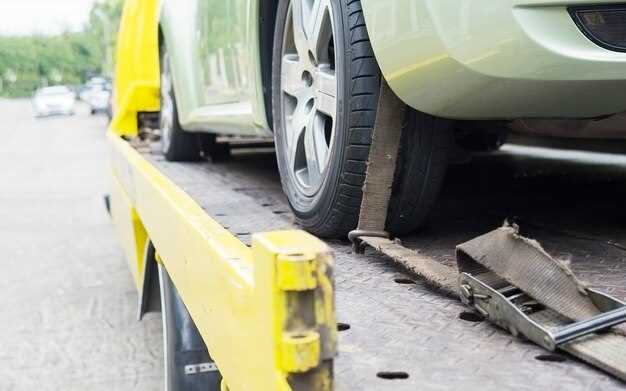
When considering the rental of a trailer, one of the most crucial questions that arises is whether you need insurance. Trailers are not merely simple containers for transporting goods; they come with their own set of risks and liabilities. Inadequate coverage can lead to significant financial burdens, particularly if an accident occurs or if the trailer sustains damage.
Before signing any rental agreement, it is essential to understand the types of insurance options available to you. Many rental companies offer coverage packages, but these may vary widely in terms of what they cover and the associated costs. Additionally, your personal auto insurance may provide some level of protection when towing a rented trailer. However, it’s vital to clarify what your existing policy entails to avoid any unpleasant surprises.
Moreover, the decision on whether to purchase additional insurance can depend on various factors, including the type of trailer being rented and your intended use. For instance, a small utility trailer may carry less risk than a large enclosed trailer, which could impact your choice of coverage. Understanding these nuances can help you make informed decisions that protect both your wallet and your peace of mind during your rental experience.
Understanding Rental Trailer Insurance Requirements
When renting a trailer, one of the most crucial aspects to consider is the insurance requirements involved. Rental companies often provide various options for insurance coverage, but understanding what you need can help protect you and your assets during the rental period.
First, it is essential to check whether your personal auto insurance policy extends coverage to rental trailers. Many policies do include coverage for trailers, but the extent varies significantly. If your policy does cover rental trailers, it may protect you against liability, damage, and theft. Always verify this information with your insurer to avoid any surprises.
Additionally, rental companies typically offer their own insurance packages. These can range from basic liability coverage to comprehensive options that protect against physical damage, loss, and other potential risks. Be sure to evaluate these offerings, as they may provide peace of mind and financial protection during your rental experience.
You should also inquire about any state-specific requirements regarding trailer insurance. Some locales mandate minimum coverage levels for trailers, which can impact how much insurance you need to purchase while renting. Understanding these regulations helps ensure compliance and can prevent legal issues later on.
In conclusion, evaluating your personal insurance, understanding rental company offerings, and knowing state requirements are essential steps in navigating rental trailer insurance. Taking the time to clarify these factors will promote a safer and more secure rental experience.
Assessing Risks: When Insurance Is Necessary for Trailer Rentals

When renting a trailer, understanding the associated risks is crucial. Depending on the circumstances, trailer rentals can expose you to various liabilities. Below are key aspects to consider when deciding whether insurance is necessary.
-
Type of Trailer:
The size and type of trailer rented can influence risk levels. For instance, a larger trailer may require a heavier towing vehicle and could be more challenging to maneuver, increasing the potential for accidents.
-
Duration of Rental:
Short-term rentals might carry lower risks compared to long-term rentals. The longer you keep a trailer, the more chances there are for damage or theft.
-
Purpose of Use:
Consider how you intend to use the trailer. If it’s for transporting valuable items or equipment, the risk of loss or damage escalates, making insurance more critical.
-
State Regulations:
Some regions have specific laws governing the use of rented trailers, including insurance requirements. Be sure to check local regulations to ensure compliance.
-
Rental Company Policies:
Different rental companies offer various insurance options. Review these policies to understand what coverage is included and what additional protection might be required.
Overall, the necessity for insurance in trailer rentals hinges on the assessment of these risks. Weighing these factors can help you make an informed decision about whether to secure additional coverage for your trailer rental.
Exploring Coverage Options and Costs for Rental Trailers

When renting a trailer, understanding the available insurance coverage options is crucial for protecting your investment and ensuring peace of mind during your rental period. Different rental companies may offer various types of coverage, which can significantly impact your total rental costs.
Typically, rental companies provide basic liability coverage as part of the rental agreement. This coverage usually protects you against damages to third parties but may not cover damage to the trailer itself. If you’re involved in an accident, this can leave you financially responsible for repairs or replacement of the rental trailer.
Collision Damage Waiver (CDW) is another option often available for trailer rentals. This additional coverage protects you against costs associated with damage to the trailer during your rental. While it can provide peace of mind, it’s essential to review its limitations, as certain types of damage may not be covered.
Another consideration is your personal auto insurance policy. Many personal policies extend coverage to rented trailers, but it’s crucial to verify the specifics with your insurance provider. This could potentially save you money on rental insurance.
Costs for rental trailer coverage can vary widely based on factors such as the rental company, the type of trailer, and the location. On average, basic rental insurance can range from $10 to $25 per day, while additional coverage options like CDW might add another $15 to $30 daily. Always evaluate the costs versus the potential risk when choosing your coverage.
In conclusion, carefully exploring and comparing coverage options when renting a trailer can help you make an informed decision. Assess your needs, consider your existing insurance policies, and choose coverage that provides adequate protection for your rental experience.





